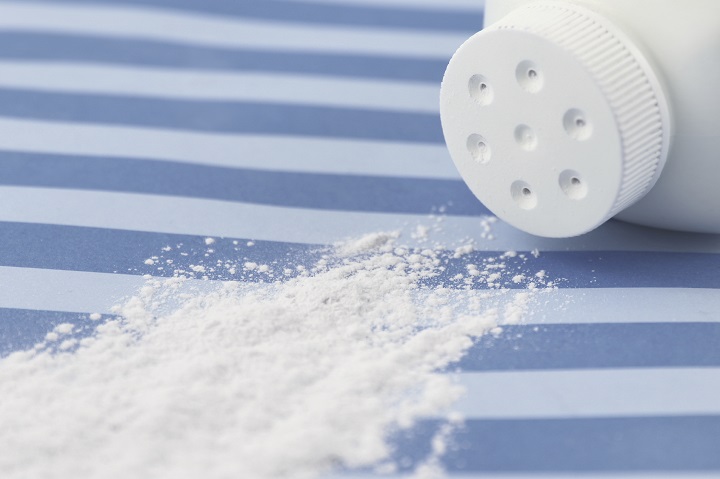For many women talcum powder is a part of their personal hygiene routine and has been for decades.

After a jury in Missouri ordered Johnson & Johnson to pay $72 million in damages to the family of Jacqueline Fox – some women are concerned about their own talcum powder use. Fox routinely used Baby Powder and Shower to Shower products and died from ovarian cancer, according to her family.
So can talcum powder really cause ovarian cancer?
There have been numerous studies done on the subject for decades – with mixed results.
According to Dr. Steven Narod with Women’s College Research Institute it’s been known for many years that talc is linked to ovarian cancer. Narod is a world-leader in the field of breast and ovarian cancer genetics.
“The link has progressively become stronger over time,” Narod told Global News. Adding that women who use talc routinely, will face a “slight increase” in their chances of developing ovarian cancer.
WATCH: Johnson & Johnson to pay $72M in suit linking baby powder to ovarian cancer

“I am not willing to give talc a free ride and I think there may be something there, and it’s probably best to avoid it,” Narod said.
In particular, he said women should avoid putting it on feminine hygiene pads.
A woman’s chance is one per cent of developing ovarian cancer – long term exposure to talc could increase those chances to 1.2 per cent, according to Narod.
As the science has differed so do opinions.
According to the CEO of Ovarian Cancer Canada, Elisabeth Baugh, “evidence linking use of talc with risk of ovarian cancer hasn’t been entirely conclusive. From what we’ve seen, the research exploring this relationship has shown mixed results.”
READ MORE: ‘Ladyballs’ campaign wants women to start thinking about ovarian cancer
The American Cancer Society agrees stating “findings have been mixed, with some studies reporting a slightly increased risk and some reporting no increase.”
The World Health Organization’s cancer review agency, IARC, described the genital use of talc-based body powder as “possibly carcinogenic to humans.”
All this leaves women confused. Narod says another thing to consider is where women use talc on their bodies.
“Certainly we believe if talc causes ovarian cancer, it does so by direct access through the vagina, and uterus, cervix into the fallopian tubes and it settles there,” said Narod.
As for Johnson & Johnson, it has posted information on its website, it states, “the safety of talc is based on a long history of safe use and more than 30 years of research by independent researchers, scientific review boards and global authorities. Talc is approved as safe for use in cosmetic and personal care products by the European Union, Canada and many other countries around the world… The U.S. Center for Disease Control (CDC), which identifies potential risk factors for many diseases, has not identified talc as a risk factor for ovarian cancer.”
- ‘She gets to be 10’: Ontario child’s heart donated to girl the same age
- Bird flu risk to humans an ‘enormous concern,’ WHO says. Here’s what to know
- Buzz kill? Gen Z less interested in coffee than older Canadians, survey shows
- Shoppers faces proposed class action over claims company is ‘abusive’ to pharmacists




Comments